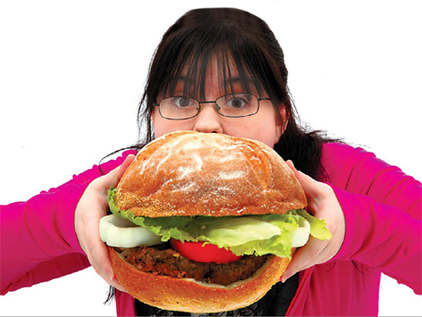
While meat and fat do increase the risk of diabetes, ethnicity and sex also have roles.
Diets heavy in meat and fat seem to raise the risk of diabetes, though the effects of this and other diet patterns may vary by ethnicity and sex, a new study finds.
The study, reported in the journal Diabetes Care, focused on white Americans, as well as Japanese Americans and Native Hawaiians - two groups that have relatively high risks of diabetes.
Native Hawaiians have high rates of obesity, which is closely connected to Type 2 diabetes, but research shows that weight does not fully explain their elevated risk of the disease. For their part, Japanese Americans have higher rates of Type 2 diabetes than their white counterparts, despite the fact that, on average, they weigh less.
The reasons for these ethnic disparities are not completely clear, but one possibility is that there are differing effects of diet on diabetes risk, independent of body weight.
In the new study, researchers found that among nearly 8,600 Hawaii residents, those with largely "fat and meat" diets - high in foods like meat, cheese, eggs and refined grains - generally had a higher risk of developing diabetes over 14 years.
Among men, the one-fifth with the highest intake of these foods were 40 percent more likely to develop diabetes than the one-fifth with the lowest intake - even with factors like age, weight and exercise habits taken into account.
That same dietary pattern was linked to a 22 percent greater diabetes risk among women.
However, analyzing the data further, the researchers found that the effect of the fat-and-meat diet was strongest among overweight men and overweight Japanese-American women. In contrast, there was no strong relationship between a heavy meat-and-fat diet and diabetes risk among Native Hawaiian women.
Similarly, other dietary patterns showed varying effects based on ethnicity and sex, according to Dr Gertraud Maskarinec and colleagues at the University of Hawaii in Honolulu.
Diets high in vegetables, for instance, seemed protective among Japanese and white men, but not Native Hawaiian men or women of any ethnicity. Meanwhile, diets rich in fruit, milk and yogurt seemed to benefit women more than men.
Despite the varying effects, the findings shed light on the types of eating habits that may raise, or lower, diabetes risk among Japanese Americans and Native Hawaiians, according to Maskarinec.
In particular, she says, the findings "point to the detrimental effects of consuming a lot of meat, high-fat foods and white flour".
She adds that both ethnic groups tend to have high intakes of red and processed meats, so cutting down on those foods may be important.
And while the findings suggested that fruits and vegetables did not benefit all groups equally, everyone should try to eat more of those foods for the sake of their overall health, according to Maskarinec.
"In our study, the findings for the fat and meat patterns are much clearer than for the other two (diet patterns)," Maskarinec notes. So, she adds, some of the findings on fruits and vegetables may have been due to chance - as opposed to reflecting a true effect, or lack of effect.
The researchers call for further studies on the effects of vegetables, fruit and dairy products on diabetes risk. "A better understanding of dietary factors related to diabetes risk in Japanese Americans and Native Hawaiians will be useful in developing preventive strategies in these high risk groups."
Type 2 diabetes - often called adult-onset diabetes - is a common disease that interferes with the body's ability to properly use sugar and insulin, a substance produced by the pancreas which normally lowers blood sugar after eating.
Diabetes is reaching epidemic levels, with an estimated 180 million people suffering from it around the world. Home to about 41 million diabetics, China has the world's second-largest diabetic population, after India.
Reuters



No comments:
Post a Comment